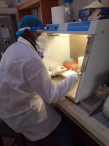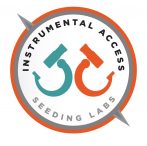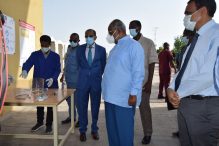Request for Expression of Interest – Environmental and Social Safeguard Specialist – Francophone
CONSULTING SERVICES – INDIVIDUAL CONSULTANT SELECTION
Second Africa Higher Education Centers of Excellence for Development Impact (2nd ACE Impact) (P1649064)
Consultancy Services for the engagement of Environmental and Social Safeguards Specialist (Francophone) at the Regional Facilitation Unit of the Association of African Universities.
The Association of African Universities invites eligible individuals to apply for the position of Environmental and Safeguards Specialist – Francophone. The detailed Terms of Reference (TOR) for the assignment can be found here , ToR- French or can be obtained at the email address given below.
Competency and Expertise
Interested Consultants should provide information demonstrating that they have the required qualifications and relevant experience to perform the Services. The shortlisting criteria are available in the Terms of Reference.
The attention of interested Consultants is drawn to Section III, paragraphs, 3.14, 3.16, and 3.17 of the World Bank’s “Procurement Regulations for IPF Borrowers” July 2016 and revised in November 2017, and August 2018 (“Procurement Regulations”), setting forth the World Bank’s policy on conflict of interest available here .
A consultant will be selected will be selected in accordance with the Individual Consultant Selection method set out in the World Bank’s “Procurement Regulations for IPF Borrowers” July 2016 and revised in November 2017, and August 2018 (“Procurement Regulations”). Further information can be obtained at the address below during office hours 0900 to 1700 hours.
Expression of Interest
Interested individual Consultants must complete the online application here. Expressions of interest must be received by close of day 18th February 2021. Clarifications may be requested per email to smkandawire@aau.org.





